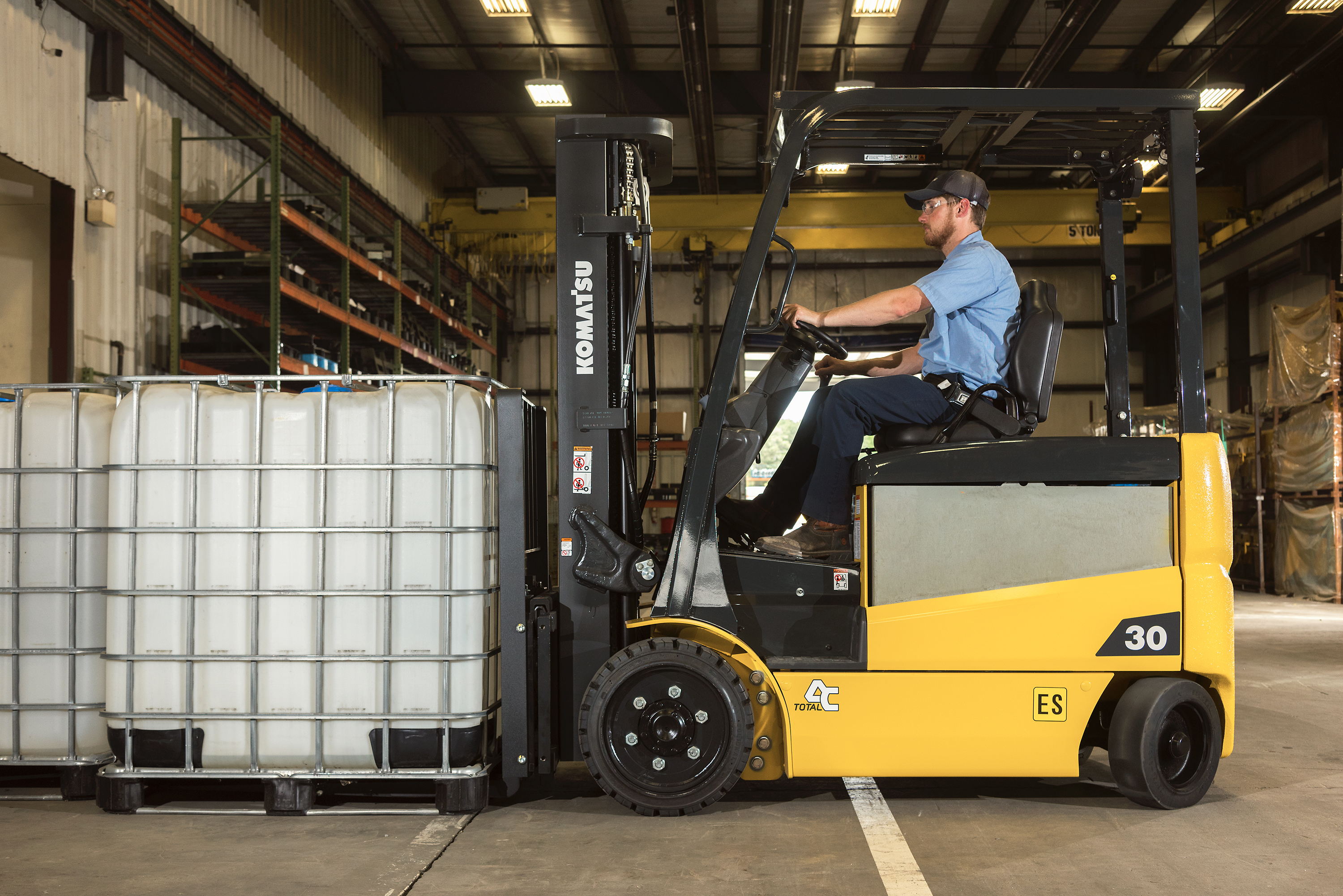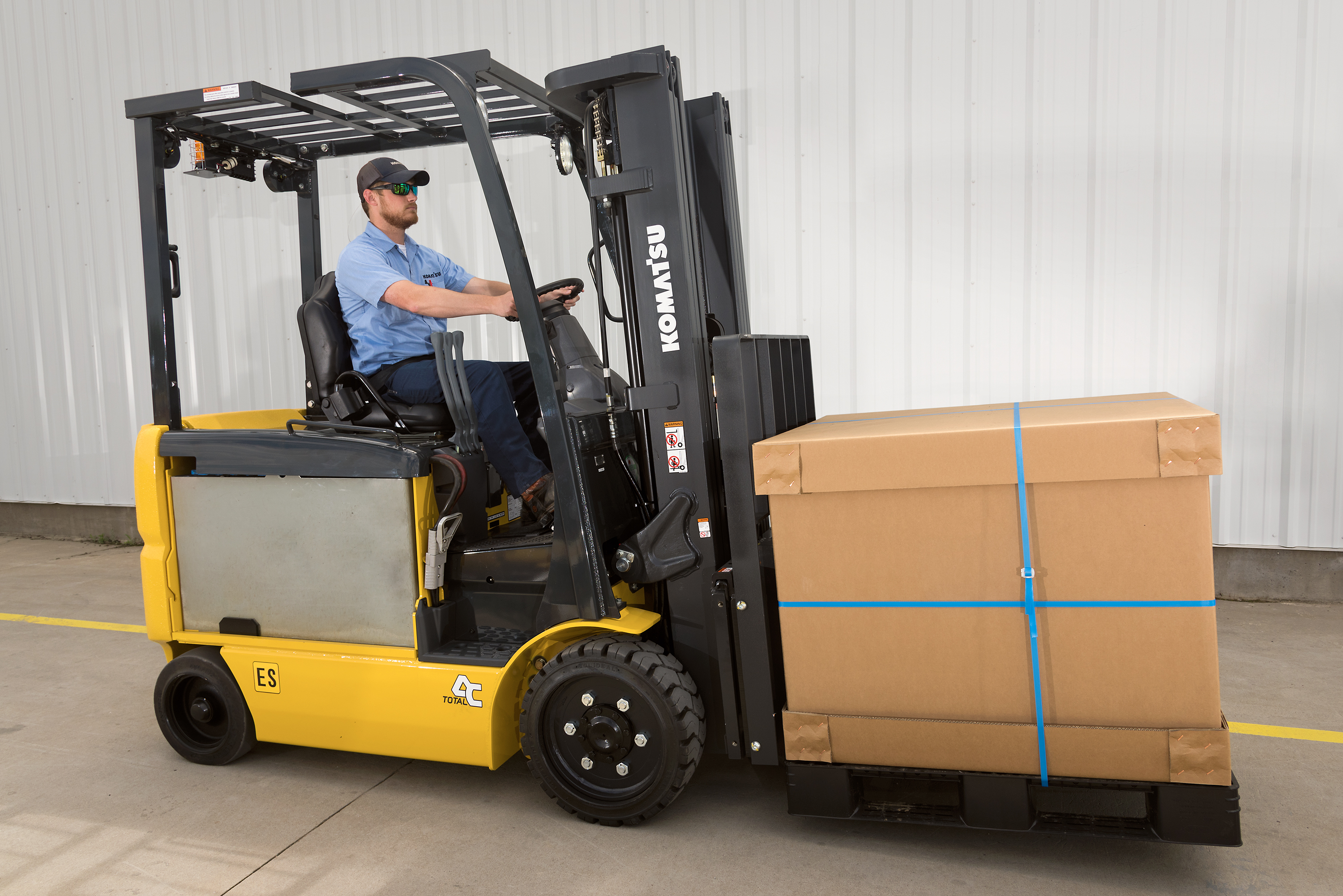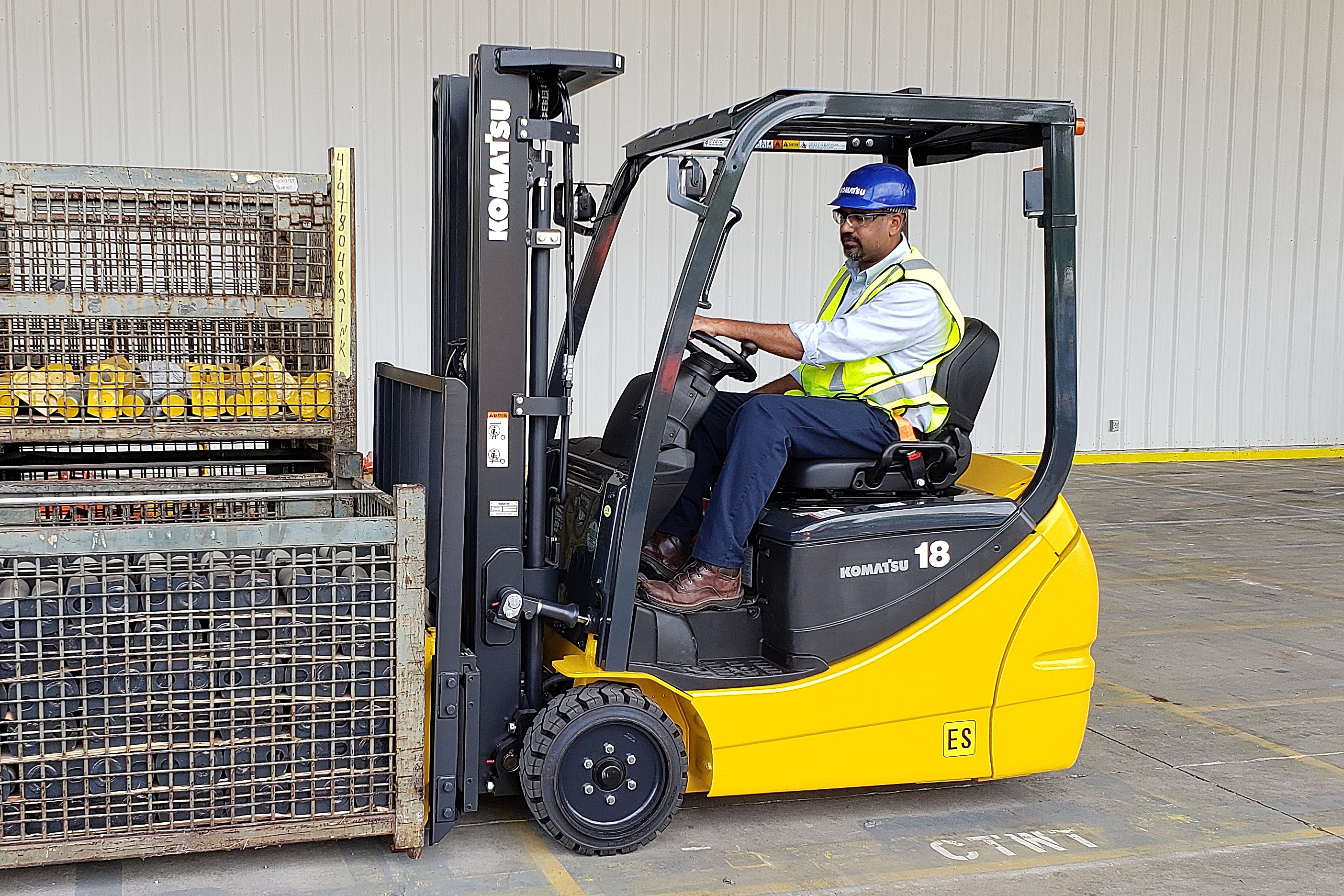4 min read
From crisis to strength: How Komatsu is reinventing its supply chain
- Operational efficiency,Blog
5 min read

Every major industrial sector today is aiming to reduce its carbon footprint. Material handling is no different. Unfortunately, forklifts powered by internal combustion (IC) engines significantly contribute to harmful CO2 emissions. Plus, these machines are sometimes used in enclosed spaces, resulting in poor air quality and noise pollution that can negatively impact workers.
Many regions across the United States are enacting legislation to reduce emissions on several fronts, and one state has focused on materials handling. The California Air Resources Board (CARB) aims to cut forklift emissions from IC machines as part of its overall effort to meet the state’s air quality and greenhouse gas reduction targets.
What are the CARB forklift regulations?
Although CARB’s forklift regulations are currently in process, the objective is to phase out IC forklifts to steer industries toward zero-emission electric forklifts for all their material handling needs.
The proposed CARB regulations are intended to allow materials handling operations to retire IC forklifts from their fleet gradually. Currently, the hard deadline is proposed as January 1, 2026, when sales, leases and renting of IC forklifts would be prohibited.
Some key points about the proposed regulations:
It’s worth noting that the CARB forklift regulations are still very much in flux. Currently, several requirements and regulations are in draft mode and being reviewed. CARB and its stakeholders continue to scrutinize and reassess general requirements. These include the phase-out deadlines for larger forklifts, sales of used IC forklifts, report mandates, and more to balance zero emissions goals with reasonable timelines for the materials handling industry. For instance, there are also reports that CARB may delay some aspects of the phase-out program set to begin in 2026. Specifically, the phasing out of Class IV and Class V forklifts may be postponed by several years, but no final determinations have been made yet.
 The move to battery-electric forklifts offers many advantages, including substantially fewer driveline parts than IC machines, resulting in simpler and less costly maintenance.
The move to battery-electric forklifts offers many advantages, including substantially fewer driveline parts than IC machines, resulting in simpler and less costly maintenance.
What CARB means for material handling in California
Clearly, the writing is on the wall for those making the procurement decisions for their materials handling operations. While the CARB forklift regulations have yet to be enacted, with several requirements still being decided, it’s usually best to get ahead of pending legislation. This makes now a good time to consider and evaluate how zero-emission electric forklifts can be gradually integrated into your fleet, with the ultimate goal of an all-electric lineup.
If you need further motivation, here are some interesting facts about electric forklifts:
 Adding battery-electric forklifts to your fleet now can help you get ahead of pending CARB requirements.
Adding battery-electric forklifts to your fleet now can help you get ahead of pending CARB requirements.
Steps you can take now to prepare for CARB requirements
If you’re in charge of making fleet decisions for your material handling operation, there are several proactive things you can do now to get ahead of pending CARB regulations and avoid costly penalties while also doing your part in helping to ensure a sustainable future.
Although the CARB requirements continue to be assessed with no final determination yet, it would be a mistake to assume that this environmental effort will fail in California. While CARB may be taking prudent steps to ensure deadlines for phasing out larger IC forklifts don’t put undue stress on materials handling operations, this industrial sector substantially impacts the environment and the workplace. It’s unlikely CARB will backtrack from such an important, expansive and well-publicized zero-emissions forklift program.
But while compliance with CARB requirements may motivate some operations to make changes, many materials handling managers will appreciate the big advantages of migrating to a 100% battery-electric forklift fleet. In fact, CARB compliance will likely become an afterthought as your material handling operations reach new heights of performance and cost efficiency.